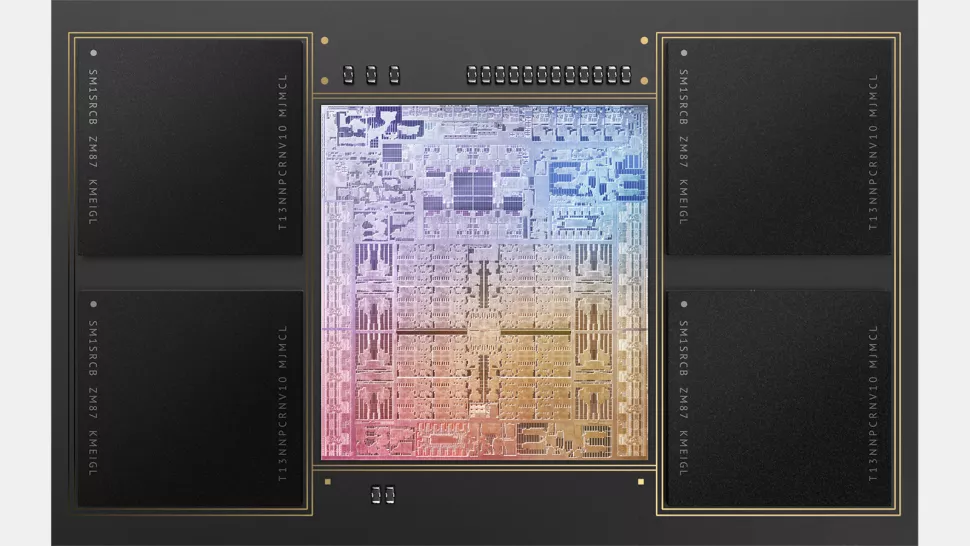Apple Reportedly Readies Three 3nm Mac SoCs: Ibiza, Lobos, Palma

Apple's aggressive Mac system-on-chips (SoCs) development plan reportedly now includes three 3nm chips — codenamed Ibiza, Lobos, and Palma — that will arrive in 2023 and will offer up to 40 general-purpose CPU cores.
With its M1-series SoCs, Apple has managed to build quite a formidable family of highly-integrated processors that can compete against the vast majority of the best CPUs from AMD and Intel. The only processors that are untouchable for Apple's M1 Max are high-end desktop/workstation offerings like AMD's Ryzen Threadripper and Intel's Xeon W. But Apple now supposedly has a hard-hitting SoC roadmap that includes a 40-core CPU due to be released in about two years from now.
Next year, Apple plans to introduce its 2nd generation M-series SoCs (M2-series?) for Mac computers, reports The Information. These processors will be made using an enhanced version of TSMC's N5 node, which is currently used to make Apple's M1-series SoCs (think N5P, N4, N4P). So, it's probably best not to expect significant improvements as far as performance and transistor count is concerned. But in an interesting twist, Apple is reportedly planning to build a multi-chip-module processor to get higher performance for demanding systems like the MacBook Pro 16.
But tangible improvements will come to Apple's 3rd generation M-series SoCs as they will be made using TSMC's N3 (3 nm-class) fabrication process. The new technology will enable the company to pack in significantly more transistors and increase clocks without increasing power consumption compared to M1-series offerings.
The alleged "M3"-series reportedly includes processors codenamed Ibiza, Lobos, and Palma. Each will target different Mac systems based on their performance requirements. The top-of-the-range offerings are rumored to offer up to 40 CPU cores over four dies, which could be good enough for workstations like the Mac Pro.
The report claims that Apple's first M3 chips will emerge in 2023, which is when TSMC starts to deliver products made using its N3 technology. Keeping in mind that Apple is usually the first company to adopt all-new nodes, it is reasonable to expect it to roll-out the first systems based on its M3 SoCs in the first half of the year (as always, though, take these kind of predictions with a grain of salt).
Apple updates its A-series SoCs for smartphones and tablets every year. The cadence is enabled both by Apple's huge hardware development team that works like clockwork as well as TSMC's regular introduction of new process technologies. With Macs, Apple is looking at steady, but not so regular SoC updates, as it is hard to develop and produce large chips for Macs. Furthermore, not all of TSMC's new nodes bring in capabilities required for PC SoCs.
